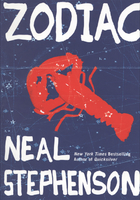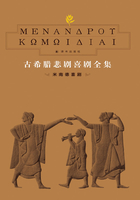The Porter at the iron gate which shut the court-yard from the street, had left the little wicket of his house open, and was gone away; no doubt to mingle in the distant noise at the door of the great staircase. Lifting the latch softly, Carker crept out, and shutting the jangling gate after him with as little noise as possible, hurried off.
In the fever of his mortification and unavailing rage, the panic that had seized upon him mastered him completely. It rose to such a height that he would have blindly encountered almost any risk, rather than meet the man of whom, two hours ago, he had been utterly regardless. His fierce arrival, which he had never expected; the sound of his voice; their having been so near a meeting, face to face; he would have braved out this, after the first momentary shock of alarm, and would have put as bold a front upon his guilt as any villain. But the springing of his mine upon himself, seemed to have rent and shivered all his hardihood and self-reliance. Spurned like any reptile; entrapped and mocked; turned upon, and trodden down by the proud woman whose mind he had slowly poisoned, as he thought, until she had sunk into the mere creature of his pleasure; undeceived in his deceit, and with his fox's hide stripped off, he sneaked away, abashed, degraded, and afraid.
Some other terror came upon hIm quite removed from this of being pursued, suddenly, like an electric shock, as he was creeping through the streets Some visionary terror, unintelligible and inexplicable, asssociated with a trembling of the ground, - a rush and sweep of something through the air, like Death upon the wing. He shrunk, as if to let the thing go by. It was not gone, it never had been there, yet what a startling horror it had left behind.
He raised his wicked face so full of trouble, to the night sky, where the stars, so full of peace, were shining on him as they had been when he first stole out into the air; and stopped to think what he should do. The dread of being hunted in a strange remote place, where the laws might not protect him - the novelty of the feeling that it was strange and remote, originating in his being left alone so suddenly amid the ruins of his plans - his greater dread of seeking refuge now, in Italy or in Sicily, where men might be hired to assissinate him, he thought, at any dark street corner-the waywardness of guilt and fear - perhaps some sympathy of action with the turning back of all his schemes - impelled him to turn back too, and go to England.
'I am safer there, in any case. If I should not decide,' he thought, 'to give this fool a meeting, I am less likely to be traced there, than abroad here, now. And if I should (this cursed fit being over), at least I shall not be alone, with out a soul to speak to, or advise with, or stand by me. I shall not be run in upon and worried like a rat.'
He muttered Edith's name, and clenched his hand. As he crept along, in the shadow of the massive buildings, he set his teeth, and muttered dreadful imprecations on her head, and looked from side to side, as if in search of her. Thus, he stole on to the gate of an inn-yard. The people were a-bed; but his ringing at the bell soon produced a man with a lantern, in company with whom he was presently in a dim coach-house, bargaining for the hire of an old phaeton, to Paris.
The bargain was a short one; and the horses were soon sent for. Leaving word that the carriage was to follow him when they came, he stole away again, beyond the town, past the old ramparts, out on the open road, which seemed to glide away along the dark plain, like a stream.
Whither did it flow? What was the end of it? As he paused, with some such suggestion within him, looking over the gloomy flat where the slender trees marked out the way, again that flight of Death came rushing up, again went on, impetuous and resistless, again was nothing but a horror in his mind, dark as the scene and undefined as its remotest verge.
There was no wind; there was no passing shadow on the deep shade of the night; there was no noise. The city lay behind hIm, lighted here and there, and starry worlds were hidden by the masonry of spire and roof that hardly made out any shapes against the sky. Dark and lonely distance lay around him everywhere, and the clocks were faintly striking two.
He went forward for what appeared a long time, and a long way; often stopping to listen. At last the ringing of horses' bells greeted his anxious ears. Now softer, and now louder, now inaudible, now ringing very slowly over bad ground, now brisk and merry, it came on; until with a loud shouting and lashing, a shadowy postillion muffled to the eyes, checked his four struggling horses at his side.
'Who goes there! Monsieur?'
'Yes.'
'Monsieur has walked a long way in the dark midnight.'
'No matter. Everyone to his task. Were there any other horses ordered at the Post-house?'
'A thousand devils! - and pardons! other horses? at this hour? No.'
'Listen, my friend. I am much hurried. Let us see how fast we can travel! The faster, the more money there will be to drink. Off we go then! Quick!'
'Halloa! whoop! Halloa! Hi!' Away, at a gallop, over the black landscape, scattering the dust and dirt like spray!
The clatter and commotion echoed to the hurry and discordance of the fugitive's ideas. Nothing clear without, and nothing clear within. Objects flitting past, merging into one another, dimly descried, confusedly lost sight of, gone! Beyond the changing scraps of fence and cottage immediately upon the road, a lowering waste. Beyond the shifting images that rose up in his mind and vanished as they showed themselves, a black expanse of dread and rage and baffled villainy. Occasionally, a sigh of mountain air came from the distant Jura, fading along the plain. Sometimes that rush which was so furious and horrible, again came sweeping through his fancy, passed away, and left a chill upon his blood.
The lamps, gleaming on the medley of horses' heads, jumbled with the shadowy driver, and the fluttering of his cloak, made a thousand indistinct shapes, answering to his thoughts. Shadows of familiar people, stooping at their desks and books, in their remembered attitudes; strange apparitions of the man whom he was flying from, or of Edith; repetitions in the ringing bells and rolling wheels, of words that had been spoken; confusions of time and place, making last night a month ago, a month ago last night - home now distant beyond hope, now instantly accessible; commotion, discord, hurry, darkness, and confusion in his mind, and all around him. - Hallo! Hi! away at a gallop over the black landscape; dust and dirt flying like spray, the smoking horses snorting and plunging as if each of them were ridden by a demon, away in a frantic triumph on the dark road - whither?
Again the nameless shock comes speeding up, and as it passes, the bells ring in his ears 'whither?' The wheels roar in his ears 'whither?' All the noise and rattle shapes itself into that cry. The lights and shadows dance upon the horses' heads like imps. No stopping now: no slackening! On, on Away with him upon the dark road wildly!
He could not think to any purpose. He could not separate one subject of reflection from another, sufficiently to dwell upon it, by itself, for a minute at a time. The crash of his project for the gaining of a voluptuous compensation for past restraint; the overthrow of his treachery to one who had been true and generous to him, but whose least proud word and look he had treasured up, at interest, for years - for false and subtle men will always secretly despise and dislike the object upon which they fawn and always resent the payment and receipt of homage that they know to be worthless; these were the themes uppermost in his mind. A lurking rage against the woman who had so entrapped him and avenged herself was always there; crude and misshapen schemes of retaliation upon her, floated in his brain; but nothing was distinct. A hurry and contradiction pervaded all his thoughts. Even while he was so busy with this fevered, ineffectual thinking, his one constant idea was, that he would postpone reflection until some indefinite time.
Then, the old days before the second marriage rose up in his remembrance. He thought how jealous he had been of the boy, how jealous he had been of the girl, how artfully he had kept intruders at a distance, and drawn a circle round his dupe that none but himself should cross; and then he thought, had he done all this to be flying now, like a scared thief, from only the poor dupe?
He could have laid hands upon himself for his cowardice, but it was the very shadow of his defeat, and could not be separated from it. To have his confidence in his own knavery so shattered at a blow - to be within his own knowledge such a miserable tool - was like being paralysed. With an impotent ferocity he raged at Edith, and hated Mr Dombey and hated himself, but still he fled, and could do nothing else.
Again and again he listened for the sound of wheels behind. Again and again his fancy heard it, coming on louder and louder. At last he was so persuaded of this, that he cried out, 'Stop' preferring even the loss of ground to such uncertainty.
The word soon brought carriage, horses, driver, all in a heap together, across the road.
'The devil!' cried the driver, looking over his shoulder, 'what's the matter?'
'Hark! What's that?'
'What?'
'That noise?'
'Ah Heaven, be quiet, cursed brigand!' to a horse who shook his bells 'What noise?'
'Behind. Is it not another carriage at a gallop? There! what's that?' Miscreant with a Pig's head, stand still!' to another horse, who bit another, who frightened the other two, who plunged and backed. 'There is nothing coming.'
'Nothing.'
'No, nothing but the day yonder.'
'You are right, I think. I hear nothing now, indeed. Go on!'
The entangled equipage, half hidden in the reeking cloud from the horses, goes on slowly at first, for the driver, checked unnecessarily in his progress, sulkily takes out a pocket-knife, and puts a new lash to his whip. Then 'Hallo, whoop! Hallo, hi!' Away once more, savagely.
And now the stars faded, and the day glimmered, and standing in the carriage, looking back, he could discern the track by which he had come, and see that there was no traveller within view, on all the heavy expanse. And soon it was broad day, and the sun began to shine on cornfields and vineyards; and solitary labourers, risen from little temporary huts by heaps of stones upon the road, were, here and there, at work repairing the highway, or eating bread. By and by, there were peasants going to their daily labour, or to market, or lounging at the doors of poor cottages, gazing idly at him as he passed. And then there was a postyard, ankle-deep in mud, with steaming dunghills and vast outhouses half ruined; and looking on this dainty prospect, an immense, old, shadeless, glaring, stone chateau, with half its windows blinded, and green damp crawling lazily over it, from the balustraded terrace to the taper tips of the extinguishers upon the turrets.
Gathered up moodily in a corner of the carriage, and only intent on going fast - except when he stood up, for a mile together, and looked back; which he would do whenever there was a piece of open country - he went on, still postponing thought indefinitely, and still always tormented with thinking to no purpose.
Shame, disappointment, and discomfiture gnawed at his heart; a constant apprehension of being overtaken, or met - for he was groundlessly afraid even of travellers, who came towards him by the way he was going - oppressed him heavily. The same intolerable awe and dread that had come upon him in the night, returned unweakened in the day. The monotonous ringing of the bells and tramping of the horses; the monotony of his anxiety, and useless rage; the monotonous wheel of fear, regret, and passion, he kept turning round and round; made the journey like a vision, in which nothing was quite real but his own torment.
It was a vision of long roads, that stretched away to an horizon, always receding and never gained; of ill-paved towns, up hill and down, where faces came to dark doors and ill-glazed windows, and where rows of mudbespattered cows and oxen were tied up for sale in the long narrow streets, butting and lowing, and receiving blows on their blunt heads from bludgeons that might have beaten them in; of bridges, crosses, churches, postyards, new horses being put in against their wills, and the horses of the last stage reeking, panting, and laying their drooping heads together dolefully at stable doors; of little cemeteries with black crosses settled sideways in the graves, and withered wreaths upon them dropping away; again of long, long roads, dragging themselves out, up hill and down, to the treacherous horizon.
Of morning, noon, and sunset; night, and the rising of an early moon. Of long roads temporarily left behind, and a rough pavement reached; of battering and clattering over it, and looking up, among house-roofs, at a great church-tower; of getting out and eating hastily, and drinking draughts of wine that had no cheering influence; of coming forth afoot, among a host of beggars - blind men with quivering eyelids, led by old women holding candles to their faces; idiot girls; the lame, the epileptic, and the palsied - of passing through the clamour, and looking from his seat at the upturned countenances and outstretched hands, with a hurried dread of recognising some pursuer pressing forward - of galloping away again, upon the long, long road, gathered up, dull and stunned, in his corner, or rising to see where the moon shone faintly on a patch of the same endless road miles away, or looking back to see who followed.
Of never sleeping, but sometimes dozing with unclosed eyes, and springing up with a start, and a reply aloud to an imaginary voice. Of cursing himself for being there, for having fled, for having let her go, for not having confronted and defied him. Of having a deadly quarrel with the whole world, but chiefly with himself. Of blighting everything with his black mood as he was carried on and away.
It was a fevered vision of things past and present all confounded together; of his life and journey blended into one. Of being madly hurried somewhere, whither he must go. Of old scenes starting up among the novelties through which he travelled. Of musing and brooding over what was past and distant, and seeming to take no notice of the actual objects he encountered, but with a wearisome exhausting consciousness of being bewildered by them, and having their images all crowded in his hot brain after they were gone.
A vision of change upon change, and still the same monotony of bells and wheels, and horses' feet, and no rest. Of town and country, postyards, horses, drivers, hill and valley, light and darkness, road and pavement, height and hollow, wet weather and dry, and still the same monotony of bells and wheels, and horses' feet, and no rest. A vision of tending on at last, towards the distant capital, by busier roads, and sweeping round, by old cathedrals, and dashing through small towns and villages, less thinly scattered on the road than formerly, and sitting shrouded in his corner, with his cloak up to his face, as people passing by looked at him.
Of rolling on and on, always postponing thought, and always racked with thinking; of being unable to reckon up the hours he had been upon the road, or to comprehend the points of time and place in his journey. Of being parched and giddy, and half mad. Of pressing on, in spite of all, as if he could not stop, and coming into Paris, where the turbid river held its swift course undisturbed, between two brawling streams of life and motion.
A troubled vision, then, of bridges, quays, interminable streets; of wine-shops, water-carriers, great crowds of people, soldiers, coaches, military drums, arcades. Of the monotony of bells and wheels and horses' feet being at length lost in the universal din and uproar. Of the gradual subsidence of that noise as he passed out in another carriage by a different barrier from that by which he had entered. Of the restoration, as he travelled on towards the seacoast, of the monotony of bells and wheels, and horses' feet, and no rest.
Of sunset once again, and nightfall. Of long roads again, and dead of night, and feeble lights in windows by the roadside; and still the old monotony of bells and wheels, and horses' feet, and no rest. Of dawn, and daybreak, and the rising of the sun. Of tolling slowly up a hill, and feeling on its top the fresh sea-breeze; and seeing the morning light upon the edges of the distant waves. Of coming down into a harbour when the tide was at its full, and seeing fishing-boats float on, and glad women and children waiting for them. Of nets and seamen's clothes spread out to dry upon the shore; of busy saIlors, and their voices high among ships' masts and rigging; of the buoyancy and brightness of the water, and the universal sparkling.
Of receding from the coast, and looking back upon it from the deck when it was a haze upon the water, with here and there a little opening of bright land where the Sun struck. Of the swell, and flash, and murmur of the calm sea. Of another grey line on the ocean, on the vessel's track, fast growing clearer and higher. Of cliffs and buildings, and a windmill, and a church, becoming more and more visible upon it. Of steaming on at last into smooth water, and mooring to a pier whence groups of people looked down, greeting friends on board. Of disembarking, passing among them quickly, shunning every one; and of being at last again in England.
He had thought, in his dream, of going down into a remote country-place he knew, and lying quiet there, while he secretly informed himself of what transpired, and determined how to act, Still in the same stunned condition, he remembered a certain station on the railway, where he would have to branch off to his place of destination, and where there was a quiet Inn. Here, he indistinctly resolved to tarry and rest.
With this purpose he slunk into a railway carriage as quickly as he could, and lying there wrapped in his cloak as if he were asleep, was soon borne far away from the sea, and deep into the inland green. Arrived at his destination he looked out, and surveyed it carefully. He was not mistaken in his impression of the place. It was a retired spot, on the borders of a little wood. Only one house, newly-built or altered for the purpose, stood there, surrounded by its neat garden; the small town that was nearest, was some miles away. Here he alighted then; and going straight into the tavern, unobserved by anyone, secured two rooms upstairs communicating with each other, and sufficiently retired.
His object was to rest, and recover the command of himself, and the balance of his mind. Imbecile discomfiture and rage - so that, as he walked about his room, he ground his teeth - had complete possession of him. His thoughts, not to be stopped or directed, still wandered where they would, and dragged him after them. He was stupefied, and he was wearied to death.
But, as if there were a curse upon him that he should never rest again, his drowsy senses would not lose their consciousness. He had no more influence with them, in this regard, than if they had been another man's. It was not that they forced him to take note of present sounds and objects, but that they would not be diverted from the whole hurried vision of his journey. It was constantly before him all at once. She stood there, with her dark disdainful eyes again upon him; and he was riding on nevertheless, through town and country, light and darkness, wet weather and dry, over road and pavement, hill and valley, height and hollow, jaded and scared by the monotony of bells and wheels, and horses' feet, and no rest.
'What day is this?' he asked of the waiter, who was making preparations for his dinner.
'Day, Sir?'
'Is it Wednesday?'
'Wednesday, Sir? No, Sir. Thursday, Sir.'
'I forgot. How goes the time? My watch is unwound.'
'Wants a few minutes of five o'clock, Sir. Been travelling a long time, Sir, perhaps?'
'Yes'
'By rail, Sir?'
'Yes'
'Very confusing, Sir. Not much in the habit of travelling by rail myself, Sir, but gentlemen frequently say so.'
'Do many gentlemen come here?
'Pretty well, Sir, in general. Nobody here at present. Rather slack just now, Sir. Everything is slack, Sir.'
He made no answer; but had risen into a sitting posture on the sofa where he had been lying, and leaned forward with an arm on each knee, staring at the ground. He could not master his own attention for a minute together. It rushed away where it would, but it never, for an instant, lost itself in sleep.
He drank a quantity of wine after dinner, in vain. No such artificial means would bring sleep to his eyes. His thoughts, more incoherent, dragged him more unmercifully after them - as if a wretch, condemned to such expiation, were drawn at the heels of wild horses. No oblivion, and no rest.
How long he sat, drinking and brooding, and being dragged in imagination hither and thither, no one could have told less correctly than he. But he knew that he had been sitting a long time by candle-light, when he started up and listened, in a sudden terror.
For now, indeed, it was no fancy. The ground shook, the house rattled, the fierce impetuous rush was in the air! He felt it come up, and go darting by; and even when he had hurried to the window, and saw what it was, he stood, shrinking from it, as if it were not safe to look.
A curse upon the fiery devil, thundering along so smoothly, tracked through the distant valley by a glare of light and lurid smoke, and gone! He felt as if he had been plucked out of its path, and saved from being torn asunder. It made him shrink and shudder even now, when its faintest hum was hushed, and when the lines of iron road he could trace in the moonlight, running to a point, were as empty and as silent as a desert.
Unable to rest, and irresistibly attracted - or he thought so - to this road, he went out, and lounged on the brink of it, marking the way the train had gone, by the yet smoking cinders that were lying in its track. After a lounge of some half hour in the direction by which it had disappeared, he turned and walked the other way - still keeping to the brink of the road - past the inn garden, and a long way down; looking curiously at the bridges, signals, lamps, and wondering when another Devil would come by.
A trembling of the ground, and quick vibration in his ears; a distant shriek; a dull light advancing, quickly changed to two red eyes, and a fierce fire, dropping glowing coals; an irresistible bearing on of a great roaring and dilating mass; a high wind, and a rattle - another come and gone, and he holding to a gate, as if to save himself!
He waited for another, and for another. He walked back to his former point, and back again to that, and still, through the wearisome vision of his journey, looked for these approaching monsters. He loitered about the station, waiting until one should stay to call there; and when one did, and was detached for water, he stood parallel with it, watching its heavy wheels and brazen front, and thinking what a cruel power and might it had. Ugh! To see the great wheels slowly turning, and to think of being run down and crushed!
Disordered with wine and want of rest - that want which nothing, although he was so weary, would appease - these ideas and objects assumed a diseased importance in his thoughts. When he went back to his room, which was not until near midnight, they still haunted him, and he sat listening for the coming of another.
So in his bed, whither he repaired with no hope of sleep. He still lay listening; and when he felt the trembling and vibration, got up and went to the window, to watch (as he could from its position) the dull light changing to the two red eyes, and the fierce fire dropping glowing coals, and the rush of the giant as it fled past, and the track of glare and smoke along the valley. Then he would glance in the direction by which he intended to depart at sunrise, as there was no rest for him there; and would lie down again, to be troubled by the vision of his journey, and the old monotony of bells and wheels and horses' feet, until another came. This lasted all night. So far from resuming the mastery of himself, he seemed, if possible, to lose it more and more, as the night crept on. When the dawn appeared, he was still tormented with thinking, still postponing thought until he should be in a better state; the past, present, and future all floated confusedly before him, and he had lost all power of looking steadily at any one of them.
'At what time,' he asked the man who had waited on hIm over-night, now entering with a candle, 'do I leave here, did you say?'
'About a quarter after four, Sir. Express comes through at four, Sir. - It don't stop.
He passed his hand across his throbbing head, and looked at his watch. Nearly half-past three.
'Nobody going with you, Sir, probably,' observed the man. 'Two gentlemen here, Sir, but they're waiting for the train to London.'
'I thought you said there was nobody here,' said Carker, turning upon him with the ghost of his old smile, when he was angry or suspicious.
'Not then, sir. Two gentlemen came in the night by the short train that stops here, Sir. Warm water, Sir?'
'No; and take away the candle. There's day enough for me.'
Having thrown himself upon the bed, half-dressed he was at the window as the man left the room. The cold light of morning had succeeded to night and there was already, in the sky, the red suffusion of the coming sun. He bathed his head and face with water - there was no cooling influence in it for him - hurriedly put on his clothes, paid what he owed, and went out.
The air struck chill and comfortless as it breathed upon him. There was a heavy dew; and, hot as he was, it made him shiver. After a glance at the place where he had walked last night, and at the signal-lights burning in the morning, and bereft of their significance, he turned to where the sun was rising, and beheld it, in its glory, as it broke upon the scene.
So awful, so transcendent in its beauty, so divinely solemn. As he cast his faded eyes upon it, where it rose, tranquil and serene, unmoved by all the wrong and wickedness on which its beams had shone since the beginning of the world, who shall say that some weak sense of virtue upon Earth, and its in Heaven, did not manifest itself, even to him? If ever he remembered sister or brother with a touch of tenderness and remorse, who shall say it was not then?
He needed some such touch then. Death was on him. He was marked off - the living world, and going down into his grave.
He paid the money for his journey to the country-place he had thought of; and was walking to and fro, alone, looking along the lines of iron, across the valley in one direction, and towards a dark bridge near at hand in the other; when, turning in his walk, where it was bounded by one end of the wooden stage on which he paced up and down, he saw the man from whom he had fled, emerging from the door by which he himself had entered
And their eyes met.
In the quick unsteadiness of the surprise, he staggered, and slipped on to the road below him. But recovering his feet immediately, he stepped back a pace or two upon that road, to interpose some wider space between them, and looked at his pursuer, breathing short and quick.
He heard a shout - another - saw the face change from its vindictive passion to a faint sickness and terror - felt the earth tremble - knew in a moment that the rush was come - uttered a shriek - looked round - saw the red eyes, bleared and dim, in the daylight, close upon him - was beaten down, caught up, and whirled away upon a jagged mill, that spun him round and round, and struck him limb from limb, and licked his stream of life up with its fiery heat, and cast his mutilated fragments in the air.
When the traveller, who had been recognised, recovered from a swoon, he saw them bringing from a distance something covered, that lay heavy and still, upon a board, between four men, and saw that others drove some dogs away that sniffed upon the road, and soaked his blood up, with a train of ashes.















